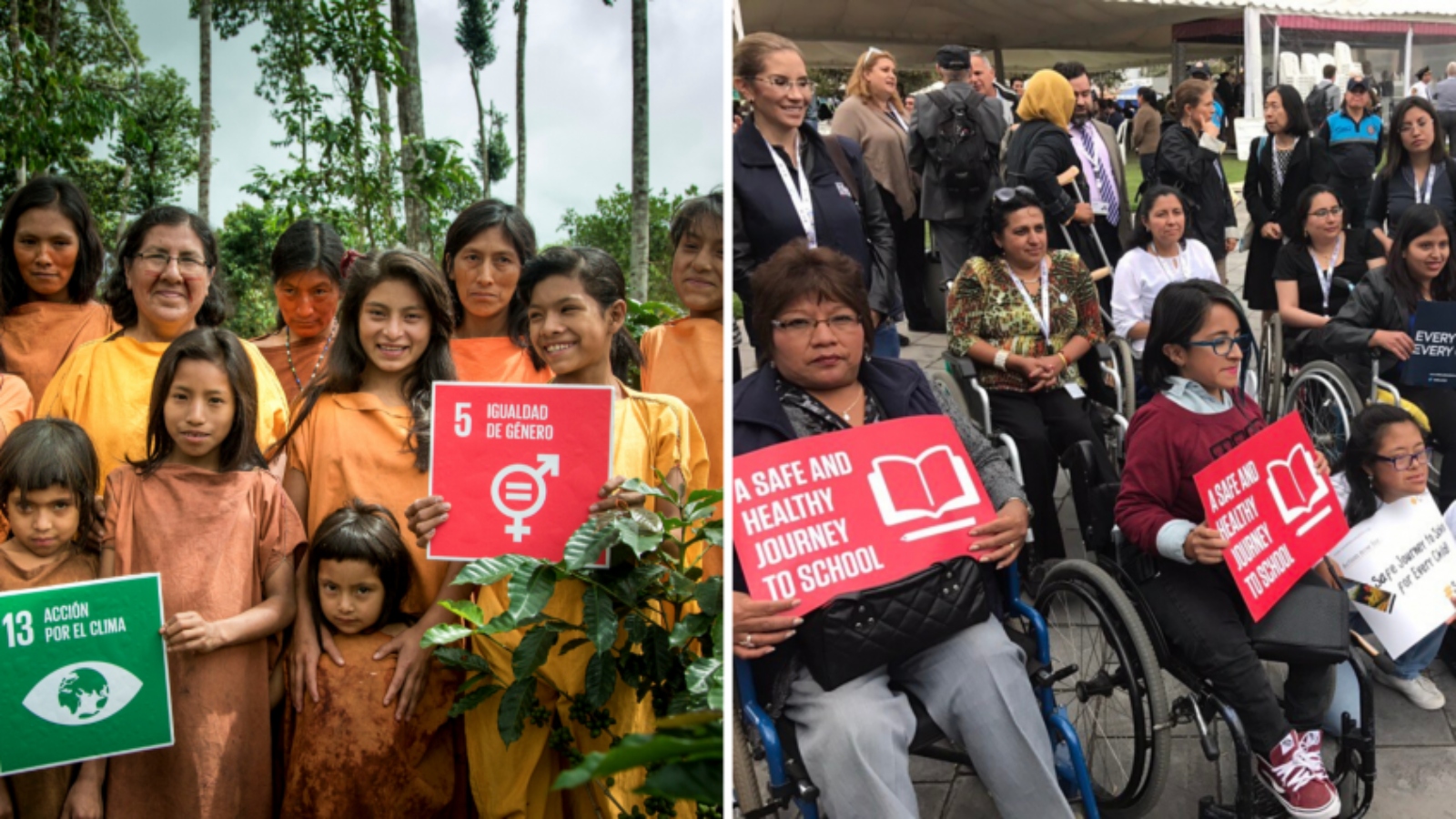
The Voluntary National Review (VNR) lab explored experiences in engaging persons with disabilities and indigenous peoples in the VNR reporting processes, identifying obstacles, good practices and what lessons can be learned to reach those furthest behind.
Engaging social groups in the VNR process – A case study of persons with disabilities and indigenous peoples
This Voluntary National Review (VNR) lab will explore experiences in engaging persons with disabilities and indigenous peoples in the VNR reporting processes, identify obstacles, good practices and what lessons can be learned to reach those furthest behind.
The principles in the 2030 Agenda to guide the follow-up and review processes state that “they will be open, inclusive, participatory and transparent for all people and will support the reporting by all relevant stakeholders.” An analysis of the 2017 VNR reports by the Committee for Development Planning noted that “among the groups that receive special focus so that they are not left behind, women receive the most attention (addressed by 41 out of the 43 countries reviewed), followed by persons with disabilities (40 countries)” and that indigenous peoples were severely underrepresented.
Despite progress and considerable efforts, the challenges that persons with disabilities and indigenous peoples face around the world persist due to stigmatization and discriminations as well as cultural and historical exclusion. This year’s discussion is very pertinent since the world is facing global challenges – from the pandemic crisis, such as COVID-19 as well as climate change, extreme poverty and the spread of conflict-, that have exacerbated the situation and pre-existing inequalities of both persons with disabilities and indigenous peoples, challenging them even more to achieve their inclusion as both beneficiaries and agents of change in society and development in alignment with the 2030 Agenda for Sustainable Development.
Above all, persons with disabilities and indigenous peoples will share their experiences in engaging in the VNR reporting processes, identify obstacles, good practices and the lessons learned in this process.
The VNR lab is organized by UN DESA’s Division for Inclusive Social Development (DISD) and will take place on Wednesday, 8 July from 12:30 – 2 pm (EDT).
Agenda of the Event
Moderator – Ms. Chandra Roy-Henriksen, Chief, Indigenous Peoples and Development Branch/DISD/DESA
Opening remarks – Ms. Anne Nuorgam, Chair of UN Permanent Forum on Indigenous Issues
Remarks by:
- Mr. Stanley Kimaren, Executive Director, Indigenous Livelihoods Enhancement Partners (ILEPA)
- Mr. Jose Viera, Chief Executive Officer of World Blind Union
- H.E. Ambassador Rodrigo A. Carazo, Permanent Representative of Costa Rica to the United Nations
Questions and answers
Concluding remarks
Registration
Please note that attendance is limited to ECOSOC accredited NGOs and members of a United Nations Major Group. Please consult the lists for both categories in the following:
- ECOSOC accredited NGOs: http://csonet.org/content/documents/E.2018.inf.5.pdf
- United Nations Major Groups: https://sustainabledevelopment.un.org/mgos
United Nations staff and Member States are also welcome to attend the event.
To register to the event please provide your information using the following link: https://bit.ly/vnrlab-ips-pwds-2020
Deadline to register for the event is 5 July 2020 and you will receive a link for the virtual VNR Lab once your registration has been confirmed.
Resources
United Nations High-level Political Forum on Sustainable Development (HLPF)
VNR Lab 2019 on “Leaving no one behind: Inclusive implementation and reporting”, Organized by DESA/DISD, EAPD and DPIDG
 Welcome to the United Nations
Welcome to the United Nations